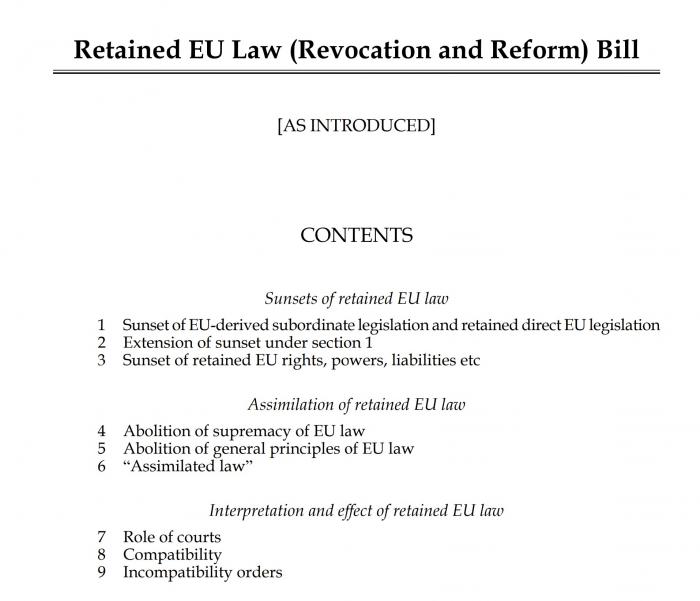Decades of carefully developed food law set to be dropped with little regard for the consequences
Decades of carefully developed food law set to be dropped with little regard for the consequences Gerry Danby Wed, 07/12/2022 - 12:47 Food Safety Food Hygiene
The Retained EU Law (Revocation and Reform) Bill currently before Parliament is due to have its report stage and third reading on a date yet to be announced.
The Bill will impose a sunset clause on retained EU law with the effect that it will cease to exist after 31 December 2023. If this is not to happen domestic legislation will need to be put in place, but the scale of this task, there are at least 2,417 pieces of retained EU law, in the time available makes this exceedingly difficult, if not impossible, to achieve.
The motivation behind the Bill would appear to be that retained EU law is somehow tainted by its past association with the European Union and not because of any deficiency or inadequacy in the law.
The implications for food law, given that well over 90 per cent comes from EU derived law, are significant. The irony is that EU food law was modelled on UK law or instigated or supported by the UK in the first place.
The Hansard Society has described the Government’s approach as “fundamentally and irresponsibly flawed” and set out five major problems with the Bill that risk creating considerable legal and economic uncertainty.
Susan Jebb, the Chair of The Food Standards Agency has made it clear that sunsetting laws for which the FSA is responsible risks a decline in food standards, with a potential impact on human health. Those words were echoed by Heather Kelman, the Chair of Food Standards Scotland in making it clear that the Bill posed a significant risk to Scotland’s ability to uphold high levels of food safety and standards.
The Chartered Trading Standards Institute (CTSI) has highlighted widespread concerns about the Bill
The CTSI along with the Institute of Licensing, the Association of Chief Trading Standards Officers, the Anti-Counterfeiting Group, Electrical Safety First, the Chartered Institute of Environmental Health, Unchecked UK, the UK Weighing Federation, the UK Metric Association, and Action on Smoking and Health have written to Prime Minister Rishi Sunak expressing their concerns.
Business leaders, including the Institute of Directors, have joined those objecting to the Bill and said it should be junked because it would cause significant confusion and disruption.
The Bill is unlikely to become law until next summer, which means the time available and the scale of the task, not least given the state of the civil service and other more important demands it faces, is immense.
Jonathan Jones, former head of the government’s legal service, warned that ministers’ plans were “ideological and symbolic” and not about considered policy, they would likely create chaos.
Does this look like the responsible regulation of food safety and food standards?




